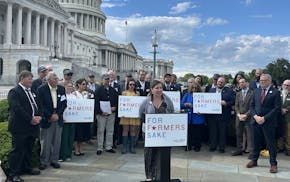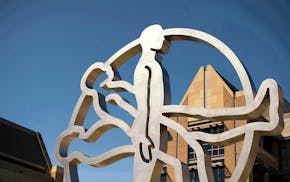In an era when cars need much less maintenance than they once did, it can be easy to forget the role tires play in a smooth, safe ride.
When they're in good shape, treads help avoid skids in the rain or ice, improve gas mileage and make driving more pleasant. When they aren't, here's the scoop on how to pick the right ones, how to maintain them properly and how to nail the lowest costs from either local or online suppliers.
Tires need replacing when they wear down to 1/16 of an inch of tread. They've reached this level when the tire tread is even with the wear bars built into it. You can also measure the tread with a penny: Insert it Abraham Lincoln-head first in a tread groove, and if the treads don't cover part of the president's head, they are worn down too far.
Those who don't drive often might need to replace tires before the tread wears out, as tires dry out with time, reducing performance and safety. Many manufacturers recommend replacing tires after six years no matter the tread wear. Regardless of that or age, though, replace a tire if there's a bulge or blister on the sidewall. If there are cuts or cracking, have an expert inspect it.
Tire buyers can choose from specialty outlets, online sources, independent shops and new car dealers. Undercover shoppers for nonprofit Twin Cities Consumers' Checkbook collected prices on popular name-brand tires from local and online operators and found it pays to shop around. Customers can save hundreds of dollars for the effort, and Star Tribune readers can access Checkbook's full report on tire stores, plus all of its ratings and advice, until Feb. 5 at Checkbook.org/StarTribune/tires.
Checkbook's shoppers found:
Major price differences
For example, prices for a set of four Bridgestone Alenza Sport tires for a Toyota Highlander ranged from $930 at Costco to $1,622 at Westside Tire, a difference of $692.
Overall, Costco, Sam's Club, Tires Plus and surveyed locations of Firestone Complete Auto Care had the lowest prices, but Checkbook's shoppers also found deals when shopping at some independent tire dealers, repair shops and even new-car dealerships.
Online-only sellers
E-tailers offered consistently low prices and a vast selection. These retailers ship tires directly to customers' homes or to a local shop for installation. Among them, Checkbook found prices at SimpleTire.com and Tirerack.com were the lowest. But factoring in installation costs, the average prices these internet-only sellers offered were higher than what Costco or Sam's Club provided.
Be specific
When shopping for price, shoppers should specify exactly what they want. If you want mounting, balancing and valve stems included, make that clear. And because there are so many tire models, many with very similar names and specifications, cite the tire model precisely, preferably by the parts number.
Installation service
You can still have great installation service even if you buy tires online. One way to make sure you nab a good price on tires and quality installation is to order from a low-priced online seller (for the four models of tires Checkbook shopped, SimpleTire.com and Tirerack.com offered very low prices), and have them shipped to a top-rated auto repair shop. Not all repair shops install tires, but many do. Checkbook also evaluates hundreds of local garages for quality and price.
Avoid pricey extras
Shops could offer tire buyers road-hazard coverage. Some stores, including Costco, provide this type of coverage for free, but many charge an extra $50 to $200 to cover a set of four tires.
The protection covers damage to tires due to road hazards during normal driving. If you have a flat tire from a nail, glass or other road debris, the company promises to repair or, if necessary, replace the tire. But if the flat comes from accidentally running over a curb or other driver-caused errors, there's no reimbursement. And these plans never pay for failure from worn tread; the manufacturer's warranty usually poorly covers that type of problem.
Unless they're free, these plans aren't good deals. A shop will charge only $25 to $50 to plug a hole from a nail. And it's hard to predict when or where a flat tire will strike, nor which tire will be the victim. So the plan would have to cover all four tires, meaning a customer would pay $100 or so to protect against having to pay $25 or so for each potential tire repair. As with any type of "protection plan" big-ticket sellers push, the real offer is just insurance that is highly profitable for the seller but provides little benefit to the buyer.
Twin Cities Consumers' Checkbook magazine and Checkbook.org are a nonprofit organization with a mission to help consumers get the best service and lowest prices. We are supported by consumers and take no money from the service providers we evaluate. You can access Checkbook's ratings of tire retailers, auto repair shops, and all other content until Feb. 5 at Checkbook.org/StarTribune/tires.

Solventum, facing tariffs of up to $100 million, raises sales guidance

Minnesota farmers leave fields for D.C. to lobby for farm bill passage

Medtech firms accused of changing spine devices, causing added pain and electric shocks

Modern-day gold prospectors in Stillwater are eying Wyoming, with plenty of investors backing them

